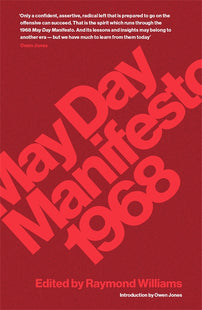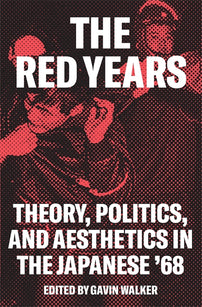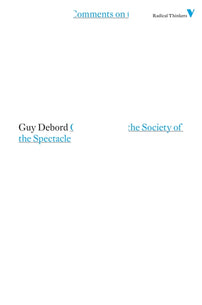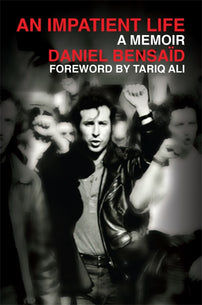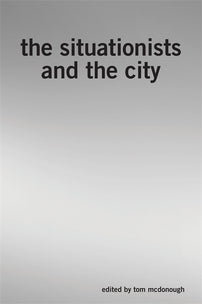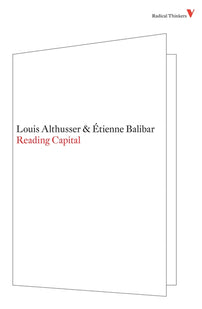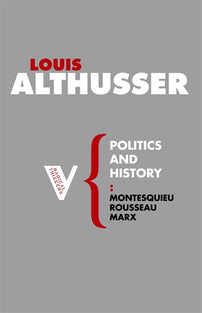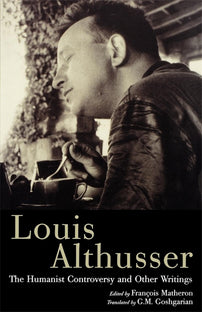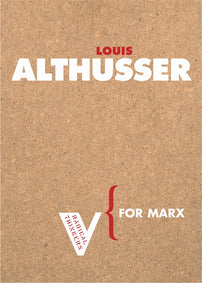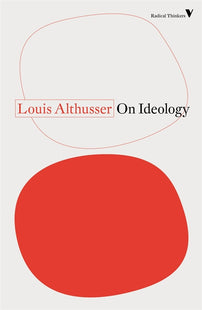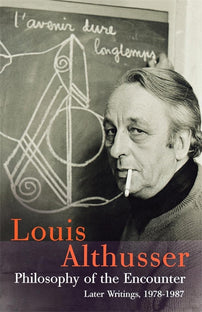The Critique of the School in Post-‘68 French Thought: Interview with Christian Baudelot
Christian Baudelot founded a research group on "the school" with other students of Louis Althusser in the wake of 1968's events. In this interview, he details the group's ambitions and its trajectory.
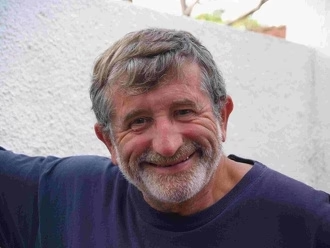
This is an interview with Christian Baudelot on the ‘critique of the school in post-‘68 French thought’. Baudelot founded the research group on the school along with other Althusserians (Étienne Balibar, Roger Establet, Pierre Macherey and Michel Tort). In this interview, Baudelot recounts in detail the background of this collective work and the resulting book, L’école capitaliste en France (co-written with Roger Establet), as well as the issues involved in the critique of the school in post-‘68 French thought.
You wrote, together with Roger Establet, L’école capitaliste en France. Let’s start with the fundamental question: why was the school so problematised at the time? Why was the school such an important figure for Althusser and for Althusserians like you?
You have to understand the whole political, ideological, philosophical and social context of the years immediately before 1968. There was a very strong intellectual effervescence and people were thinking a lot and, basically, there was the possibility of changing society in depth. There were models, there was China, i.e. Maoism, and there was Cuba too. So, there was a whole hope for profound and revolutionary social transformation. And there was the history of the whole movement around Althusser with Reading Capital, For Marx, etc., and there were a lot of groups too. In short, there was a very strong effervescence. And around 1967 or so, Althusser gathered around him a certain number of people he knew because he had known them as students at the École Normale. He brought together some very diverse people, from quite different generations. There was Althusser himself, there was Hélène, his wife, there was Charles Bettelheim, the economist, there were Alain Badiou and Emmanuel Terray, there was Jean Paul de Gaudemar, a sociologist, there were Balibar, Macherey, Establet, me and Michel Tort, and there was also a physicist from the École Normale. And this group was totally informal. We met from time to time, I don’t say very often, on Sundays, at about 10 o’clock in the morning, in the Salle des Actes – there was no one there – and we spent the whole morning or afternoon discussing. The objective was extremely ambitious. At that time, there was a very strong theoretical and political ambition which may be surprising now. The objective was to publish a whole set of analyses, since Althusser had his ‘Théorie’ collection at Maspero. Bettelheim was very familiar with the history of the Third World, the Chinese economy, the Cuban economy, etc., so there was the question of economic transformation. And the basic aim was to provide weapons, through a whole series of investigations, for understanding the current situation, which we thought was pre-revolutionary. So, the objective was extremely ambitious, crazy. Today we can say it was crazy. And Althusser, it seems, was a bit carried away by his idea. But we found it perfectly normal, perfectly natural to think about these things. And we weren’t at all surprised by May ‘68. I’m not saying we had foreseen it, because that would be impossible. But this transformation, this revolt, and the questioning of a whole set of structures, both political and above all mental, social, capitalist, oppressive, etc. – since we had been read our Foucault – it seemed quite possible. In the end, the publication objectives fell through. There was our book, which is about the only one that came out of it, and Althusser rejected it. He read it in its entirety, he helped a lot, he commented a lot, but he refused to publish it in his ‘Théorie’ collection, though he remained very friendly.
Why did he reject it?
I think there were attacks on the French Communist Party in which he was still active. There were excesses about the Cultural Revolution... I can understand. I can understand very well. And it was finally published independently by Maspero. From the point of view of intellectual production, it is, indirectly, the only testimony of this group. And we were divided, but I don’t remember exactly who did what. But Roger and I immediately proposed to focus on the school. That is to say, we had been deeply influenced by Bourdieu. I did an agrégation in classics, and after passing my agrégation in classics, I realised that I didn’t want to be a French teacher at all. And, one day, Althusser said to me: ‘Listen, I know that you’re wondering what to do, and I advise you to come to the Bourdieu and Passeron seminar tomorrow. And you’ll see that it’s fascinating, he’s doing something on the school.’ I knew Bourdieu a bit from the work he had done in Algeria. So I followed this seminar from A to Z, and it fascinated me and made me discover sociology, analysis, surveys on the problems of social inequality, etc. Afterwards, I was hired as a trainee in Bourdieu’s Centre de Sociologie Européenne. I started to do statistical calculations on the data he had. We worked on material around The Inheritors. I learned a lot. That was in ‘64, ‘65. And after that, until ‘68, I owed very much to the research of those two, of Bourdieu’s research group. But there were also things that I didn’t like there, there was a whole group of colleagues, there was even a religious side etc., and in ‘68 I slammed the door. And with Establet, who wasn’t in the research group but who was studying there, we were quite agreed in considering that there were tremendous things in Bourdieu and Passeron, but that, at the same time, in his analysis of the university, of students, there was a lot missing in the analysis of the school as a general institution. And, at that moment, in that group, we volunteered, and it was accepted by everyone, that we should to work on the school. And, from time to time, we produced reports, we did things which were discussed, and they were extremely fruitful. So that’s how this book came about, and at the same time, it also allowed us to settle our accounts with Bourdieu and Passeron. It was a bit like killing the image of the father. We wouldn’t do things like that today. It’s obvious now, because The Inheritors contributed a lot, it was widely read, discussed, and worked on by everyone, but the divergence with Bourdieu and Passeron is in no way the most important question. It was also a violent moment of revolt, which doesn’t exist anymore.
So the preparation of L’école capitaliste en France was totally independent of Bourdieu and Passeron’s project on reproduction?
Yes, absolutely. Basically, at that time, we had already broken with Bourdieu in terms of the research group. And, as much as we found The Inheritors to be something wonderful, we were a bit disappointed by Reproduction as being a bit too formal, a bit scholastic. There were fewer investigations. In The Inheritors, there were several investigations. I knew Bourdieu very well, as we contributed along with others to producing the tables and statistics.
I’ve been to the IMEC [Institut Mémoires de l’Édition Contemporaine]. There are the documents there of this research group: the files of the Spinoza group, and of the collective work on the school. So, was the research group on the school a continuation of the Spinoza group?
Yes, it was the same thing. It was a part, but it wasn’t the main part. Roger and I were the ones who did the most work, we submitted what we were doing to the group, and no doubt the thing was discussed and criticised. Some points were taken into account, but not others. But yes, it was an emanation. Afterwards, we submitted all the manuscripts to Althusser as we wrote them, and he sent them back to us annotated in an extremely precise way, with a good deal of quite harsh and very fair criticism. We benefited a lot from this. And then, he thought we had gone too far, that is to say with Mao, the Cultural Revolution, etc.
At the IMEC, there are a few almost finished chapters of another version of this book, written by Balibar in particular.
Yes, I remember.
It’s Balibar’s plan. There is already the idea of school apparatuses as state apparatuses.
Yes. And Althusser’s text on the ideological state apparatuses was written before our book. It served us very well as a general theoretical architecture.
Could one say that it was rather you who set this going...?
Roger and I were quite well informed on the question of the school, at the beginning, by Bourdieu, who had really unearthed the question. The problem was that Bourdieu was reproached for not inserting it into a Marxist problematic. So, we were forced to do this with the whole business of the ideological state apparatus, the class struggle within it, etc. That’s how it came about. That’s how it happened.
If I understand correctly, you had the idea of working on the school with Bourdieu, and then...
We learned sociology from The Inheritors, from all the surveys he had done.
I have another document, I think it was written by you and Roger Establet. The theory of ideological state apparatuses is practically sketched out here, even if you call them ‘school apparatuses as state apparatuses’. You have ‘Place of the school in the class struggle: social division and the system of inculcation of ideology’; ‘inculcation is always done at two levels: practical subjection, ideological-theoretical subjection’.
Yes, all that was in ‘68. But it’s interesting to see it because it was written in March 1968, before the May events. The history of the ideological state apparatus, I think that Althusser wrote this article following all the discussions of our collective work, all the exchanges which took place between the members of the group. This group gave birth to our book, but also, and perhaps above all, to Althusser’s text on the ideological state apparatuses, which at one time was very important.
[book-strip index="1" style="display"]According to the manuscripts of this group, educational apparatuses rather meant repressive apparatuses.
Yes, there was also the influence of Bourdieu, Deleuze... these ideas circulated a lot. Constraint, repression, Freud… Basically, it started from a questioning that now seems commonplace, but, at that time, the French secular school system, free and compulsory, was a sacred object. The social functions of reproduction were absolutely invisible, and nobody questioned them. That’s why when Bourdieu and Passeron attacked the school system by way of the university, and then we continued it – it was a real scandal. For example, the Communist Party didn’t want us to touch the school. It was a sacred object; it was already a considerable social progress. It was assumed, therefore, that it was equal. At that time, there was no investigation into the extent or nature of inequality. Afterwards, we looked for things. There were some early surveys that were done in the 1920s, by the inspectorate, but they were never released. And the first real survey carried out in France on the social functioning of the school was that of the INED [Institut National des Études Démographiques] commissioned by Alain Girard, a demographer and sociologist, who followed a panel of pupils who all started in 1962, in the 6th arrondissement, and followed a large sample year after year, with a lot of data on the pupils, i.e. the various paths they took, then the characteristics of the pupils, i.e. their sex, their parents’ profession, their parents’ educational level, etc., and thus succeeded in highlighting the enormous force of social reproduction. This is the first survey. And the first result was known just before 1968. And it was a revelation.
Hence your thesis that the unifying school did not exist. I would like ask a second point about your document. There is already the idea of ideological inculcation carried out by the school apparatuses. Was this already, at the time, your common perspective in this group?
Yes. Here too, there were excesses. It’s more complicated now. There is a complete mix between scientific and ideological teaching... We took the example of learning to calculate. Calculation means the four operations. And then, very often, this meant sale price, purchase price and profit. Numbers were being taught, so the beginning of science, but at the same time, from a completely distorted view of economic life. But, at that time, we didn’t go into such details.
In the early 1960s, when you began to follow Bourdieu’s courses, were you yourself also in the UEC (Union of Communist Students)?
I was not. Roger was in the UEC and then in the Communist Party. And he left it early on, ‘63, ‘64.
All the same, you participated in the student movements.
Yes, of course. I participated in the movements against the Algerian War.
I’m a bit surprised at the simultaneity between your beginning to follow Bourdieu’s lectures and this movement in the 1960s.
There is one thing that is certain. They didn’t participate in the movement at all. They entrenched themselves behind their wall, in their research. They completely missed ‘68 by saying that it wasn’t anything important. Which was also true. There were complete disillusions. But they didn’t participate. I participated a lot because I was an assistant at the University of Lille. I went between Paris and Lille. And I saw what could be done as a university reform in a very concrete way with the students and teachers. It was also a very constructive thing. In Lille, we completely modified the teaching of sociology by introducing surveys, by making the teaching more practical, much more cooperative. We set up research groups, that is to say that, every year, at the beginning of the second year, we tried, with the students, to decide on a subject, and we carried out surveys of what we wanted. That was a contribution from ‘68. We really invented. There were very direct working group meetings. We argued a lot, but, in the end, we managed to do things together, to modify the courses that were imposed on the university. Bourdieu didn’t take part at all in these things. And, since I lived in Paris and taught in Lille, I went to all the demonstrations in Paris.
This introduction of surveys in the sociological sector also aimed to modify the relationship between professors and students.
Yes, a lot. I did it all my life afterwards, where I was in Lille, at the INSEE [Institut National de la Statistique et des Études Économiques] in Paris, and then in Nantes, then at the École Normale Supérieure. Each time and every year, I carried out several surveys with the students. And the idea was that the classic pedagogical relationship is vertical, because there is the teacher and the students: the teacher knows everything and the students know nothing. Secondly, they are face to face. Whereas, with the survey, you are looking at a common work, with an objective which is to produce a result and to increase knowledge. And you participate together, you have a common goal. At that point, it completely changes the relationship between teachers and students because they have something to do. It’s the same thing as Freinet. The teacher Célestin Freinet, who was responsible for a complete renovation of teaching, where you did something together with the students, a production. We did a lot of that. On the other hand, we were formed by the Algerian War. We encountered the Algerian War at the age between adolescence and adulthood. And this conjuncture is extremely important, because it was also the idea of a victory of the people, a struggle for decolonisation. With Bourdieu and Passeron, there was a moment when you didn’t need politics if you were going to use sociology. We always considered that it was necessary to do both. But, at the same time, there was a formal opposition, because Bourdieu and Passeron were driven by political points of view throughout, concerning inequality of access to the university, it was still political.
According to you, in France people started to be interested in analysing the school structure from the 1960s onwards.
In France, the school plays a much more important social role in general than in other countries since it was the foundation of the Third Republic. The school was built against all the strongholds of the old regime, i.e. religion, the church. The school had to be torn away from the church, and a secular school made. So, the idea of republic and secularism also involved the question of equality and freedom of thought. It was really the idea of liberty, equality, and fraternity in the school that the Third Republic brought to life throughout the country. And, so, it had considerable importance. It was the symbol and the instrument of the Republic, against the monarchy, religion, the church, etc. So there has always been a feeling that it was a considerable historical progress, which is absolutely true. And it was also a vehicle for guaranteeing republican life, for the formation of republicans. And it had never been questioned. So, after quite a while, that is to say in the 1960s, with all the questioning, social criticism could develop better. It wasn’t a period of recession. In a period of great development, of economic growth, one could dream or imagine other forms of society.
I would like to come back to the capitalist school in France. At the beginning, as a research group, you prepared the book. But then, you and Establet finally wrote it. Why did it happen like that?
Because there was a breaking point. At the beginning, there was a group. And then, after a while, the group fell apart: Badiou and Terray left, Althusser was sick too. And the text we finally drew up was not accepted by Althusser. At that point, we were thinking independently, and we discussed it. And we said: ‘This is completely stupid. All the work has been done – and we did all the work, the statistics and so on, the others weren’t doing statistics. So we’re going to publish it somewhere else, with everyone’s agreement.’ It was not a surprise at all. We warned them, since it couldn’t be published in the planned framework of Althusser’s ‘Théorie’ collection, we would take the liberty, and since we were the ones who did the essential... They didn’t agree, there were disagreements, but, from the moment we signed, they were independent.
In this book, there are a lot of statistics, for example compared to the previous version by Balibar.
Yes, absolutely. It was an enormous job that we did. Because we corrected a kind of false sample that hadn’t been done in France. That is to say, we took the numbers for the sixth, fifth and fourth years, and we tried to understand what happened to those who were in the sixth year, and those who were there afterwards, in order to measure repetition. And it was a huge job, because the data didn’t exist. We had learned statistics from Bourdieu. And we thought that we couldn’t do a survey on the school without statistical data, without facts. We were totally free because nobody else had done it.
Did you carry out the survey in the schools?
We mainly used data from the ministry of national education. We made full use of the ministry’s statistical data published every year.
At the IMEC, there are documents titled ‘Notes de Louis Althusser de “L’École capitaliste en France”’, in which there are the comments by Louis Althusser. There are these meticulous comments that Althusser made on the manuscript of your book.
That was great. All the criticisms were fair, and they served us well. At that time, he made this critique on the assumption that he would publish it in his collection. His reading was remarkable. He was an extraordinary reader, very good at detecting contradictions. In particular, he reproached us a lot for attacking Bourdieu and Passeron all the time.
And then, in La petite bourgeoisie en France, you worked on the petty bourgeoisie. How did you make the transition from the school to this subject?
I remember very well why we worked on this. It was the time of the Common Programme. There was a sort of political alliance between the Socialist Party and the Communist Party. The Communist Party was the working class, and the Socialist Party was more the petty bourgeoisie. In principle, they could function together. And we thought that this was impossible because they did not have the same class interests and the petty bourgeoisie was not at all linked to the proletariat. On the contrary, they were always distinct from it. So, we wrote this book to show that this alliance was a completely unnatural alliance.
But the idea seems to be there already in the book on the school, since you show there that there is always the division between the proletariat and the other classes.
Yes, of course. We remained fairly faithful to what we had established. But we thought it would be interesting to tackle the question of social class today. That’s why we distinguished three class fractions. There were the independents, the craftsmen and shopkeepers, there was a small public bourgeoisie of civil servants who were much more progressive and who tried to conceive of alliances with the proletariat, and then there was a part of the bourgeoisie, the managers, who were totally reactionary, much more to the right. It was also to show how there was deep diversification within the middle class.
And La petite bourgeoisie en France, did you have Althusser read it?
No.
That is to say, you had already rather loosened the tie...
Yes, totally. The group became untied in the 1970s.
[book-strip index="2" style="display"]Because of what?
Because of many things. After ‘68, people like Terray and Badiou didn’t agree with the attitude of Louis and the Communist Party towards ‘68. Then Althusser was ill. And then people became a bit divided. It was a story of a group that dissolves. But it wasn’t a conflictual rupture at all.
Did you read Althusser’s Lesson when Rancière published it?
No, I didn’t read it. He wasn’t in that group.
After the Algerian War, the students continued their movement to improve the university situation. Did you take part in that too?
We were no longer students. But, after the Algerian War, after the Vietnam War, the student movement was much less strong in France. It became quite unionist on strictly academic issues, there was no longer any overall political vision, except on the part of the left, and the leaders very often became political professionals, but the overall vision disappeared.
In the conclusion of L’école capitaliste en France, you refer to Mao a lot. Can you explain why?
At the time, Mao meant the Cultural Revolution. That’s what we understood about it, and what we knew about it in France. There is a world of difference between the idea we had of the Cultural Revolution and the reality we discovered afterwards. And we could not have been more rigorous in our work. But the idea of cultural revolution is that revolution doesn’t only take place in the collective force, in the factories, etc., but in all areas of life. It exists in all areas of life. And, in intellectual and moral life. Bourdieu said the same thing. He wasn’t talking about cultural revolution, but it was the same thing. It’s not only in the factories that the class struggle takes place. The class struggle is everywhere, including in the gaps in culture, the cultural domination of a number of social groups who know more about literature than others, etc. There was that side. It’s about moving the class struggle to the sphere of culture. And, on the other hand, there was in the idea of cultural revolution the idea that the popular masses also know a lot of interesting things, that there is not a complete separation between the culture of the upper class and that of the other classes, and therefore that the managers, the teachers and the intellectuals have a lot to learn from the vision of the world, from the culture, of the popular class. That’s the idea we’ve retained. We stand by this. It’s absolutely right.
Did you think that Mao’s thinking could completely change the education system?
Yes, absolutely, that’s what we thought. But it was expressed in terms that corresponded to terrible atrocities and murders. I knew China afterwards, and I saw the people who had been re-educated. It was absolutely horrible. They were displaced students and had to regret their studies all their lives. That, we did not know about, or did not want to know.
Your idea was to change, to horizontalise the relationship between student and teacher.
That’s it. And it remains. That’s why it’s practical to take up Freinet’s pedagogy in modern forms. And this is facilitated considerably by the new forms of communication technology: computers, the Internet, etc.
Rancière also did much the same thing in The Ignorant Schoolmaster.
Yes. There are a lot of things in common. We were brought up in the same things... That idea is completely common to this generation.
The way in which you approached the question of the school in your book with Roger Establet, does that still hold for analysing the school today?
Yes, it’s not at all finished. What was initially a bit scandalous is now accepted. But the problem is that it has changed. Because we had 104 meetings throughout France on our book, and at that time, in the 1970s, the discovery of inequalities was a scandal. Everyone, on both left and right, agreed: ‘We must put an end to this inequality’, ‘How can we achieve a fairer, more equal school?’, ‘What reforms should be made?’ The inequality was so scandalous that it had to be corrected. People could not tolerate the system being so unequal. And there were attempts, there was the collège unique. And then, with the economic crisis, the oil crisis, the rise in unemployment in the years from 1975 to 1980, everything changed. Inequalities were accepted. And the problem was how each family could ensure that its children had the best possible education that would give them the chance to escape unemployment and under-qualification. There was a complete change here. We also realised at that point that it was working in reverse. People, the most informed categories, used these sociological analyses to detect colleges, establishments where there were more working-class children etc., so as not to put their children there. Basically, all the knowledge that was gained was used in reverse, to recreate and continue to reproduce basic inequalities.
So, in a certain sense, the educational reform went towards individualisation.
After the oil crisis, yes. Now, families were all looking to optimise schooling and use all the knowledge on that. It was a neoliberal and individual reform. We worked a lot on it with the national education services, the directorate of studies and programmes, which was headed at the time by a guy who was a great friend of ours, called Claude Théot, who tried to calculate for each lycée, based on the results of the baccalaureate, which were the schools with the best scores. But it wasn’t just the raw scores, it was the content of the population and the social structure of the population. Schools with 60% upper-class children are not the same as schools with 60% working class, lower class etc. So, he controlled the result according to social category. We did a lot. We contributed, we commented on all this in the press, in the Nouvel Observateur and in Le Monde. What was interesting was that it showed that some schools had working-class classes which did better than expected. And this data was very often used by families to say that this school should not be used, that one is not bad, etc. It was a consumer’s approach to education. Now, there is enough knowledge of the school system for there to be informed consumers, enabling them to place their children in the system.
Translated by David Fernbach
